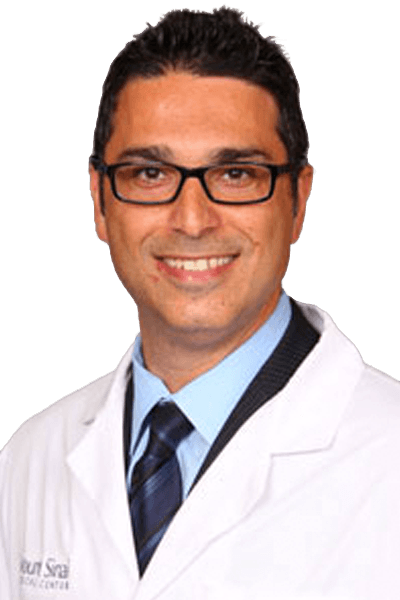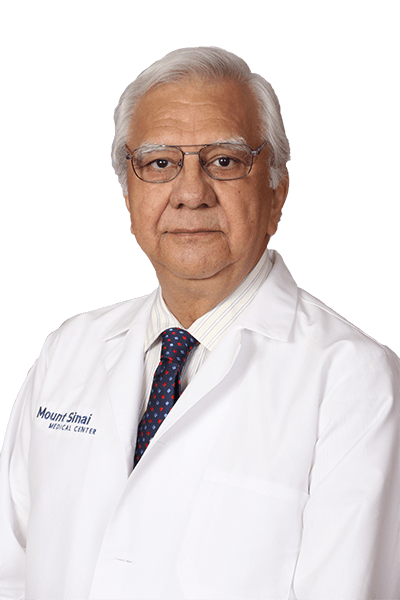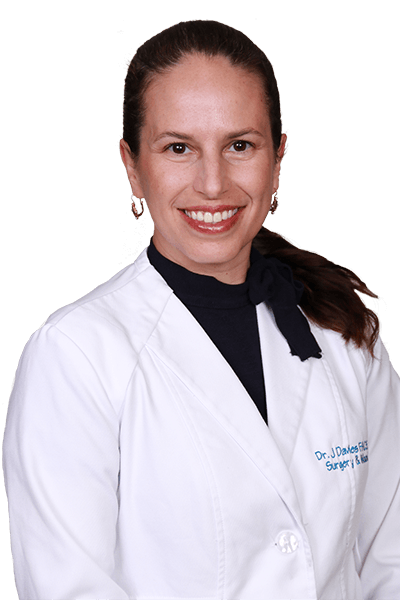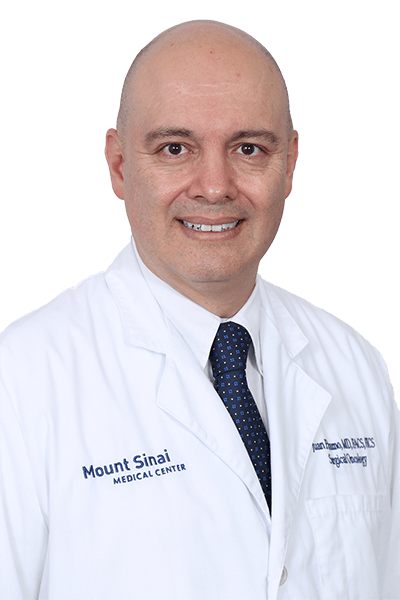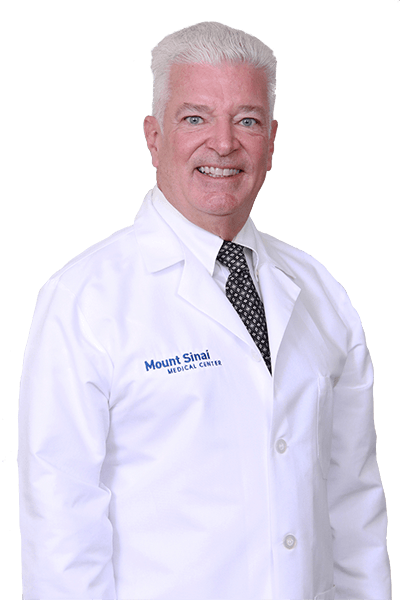Conditions and Treatments
Abscesses
Abscesses are collections of infected material. These can occur anywhere, from the skin to inside the abdominal cavity. At times, these collections can be life-threatening, requiring urgent intervention. Interventions are aimed at controlling the source of infection, removing the infectious material, and providing proper antibiotic treatment. Our surgeons work with other medical professionals to address these collections, often with minimally invasive techniques, leading to efficient treatment with shorter recovery time.Airway Access
Critical illness can prevent patients from breathing independently. Our general surgery team can create airway access for long-term management of a patient’s airway.Appendicitis
The appendix is a small tubular organ located at one end of the large intestine (colon). It can become obstructed and then inflamed, leading to pain, malaise, fever and/or nausea. Appendicitis can vary in its presentation and severity, but all cases require urgent evaluation and treatment. Mount Sinai’s general surgeons understand the latest treatment approaches and strategies to manage different presentations and are able to quickly assess the condition and intervene. The vast majority of cases treated at Mount Sinai are approached with minimally invasive techniques, despite severity.Bowel Obstruction
Bowel obstructions can occur for many reasons, and many require surgery to alleviate the obstruction. Whether the obstruction is due to scarring, hernias, or masses, our team is fully qualified to manage and treat all causes.Diverticulitis
Diverticula are small outpouchings that occur on the bowel wall. These diverticula can become inflamed, causing pain. Often, this condition can be treated with bowel rest and antibiotics, but it can also become a problem that warrants surgery if the inflammation fails to respond to antibiotics or perforation occurs. Surgical options include laparoscopic abdominal washout of infectious and inflammatory fluid (pus) and removal of the affected portion of the colon. Our team can tailor a treatment plan based on each individual situation.Gallbladder Dysfunction
The gallbladder can have poor function that can require intervention due to digestive symptoms, even without stone disease.Gallbladder Polyps
Polyps can form throughout our digestive tracts, including the gallbladder. Just as polyps in the colon are removed for cancer prevention, gallbladder polyps are monitored and require intervention once certain criteria are met. Mount Sinai’s general surgeons can provide monitoring of these polyps and determine when the polyps warrant removal of the gallbladder.Gallbladder Stones
The gallbladder stores bile made by the liver to aid digestion of fat containing foods. Stones can form in the gallbladder and either be asymptomatic or cause varying degrees of digestive symptoms. The symptoms arise from the stones obstructing bile exiting the gallbladder and incomplete digestion of the recently consumed meal. Whether a patient has little to no symptoms or severe gallbladder disease, the general surgeons at Mount Sinai are experts in managing disease states of the gallbladder.Gastroesophageal Reflux (GERD)/Hiatal Hernia
Acid reflux is a common problem affecting many in the population. Today, most reflux is treated non surgically with anti-acid medication. Some cases, however, persist despite proper medication therapy and require intervention. Surgery can be used to repair conditions that contribute to reflux, such as hiatal hernias. These hernias allow the acid of the stomach to enter the esophagus, more easily leading to symptoms. Minimally invasive surgical repair can be done, offering a faster recovery.Hidradenitis
Hidradenitis is a disease affecting the skin. It is an inflammation of hair follicles and/or oil glands, leading to pus-draining boils and sinus tracts and affecting areas of heat and friction on the body such as groins, armpits, and other skin creases. These lesions can be painful, malodorous, and embarrassing to patients. For true success, the approach to treatment must be multifactorial, treating both the infections and skin lesions with surgery, but also addressing the inflammation medically. Mount Sinai offers the advantage of multi-disciplinary teams of physicians and surgeons who can work together to address all aspects of this problem.Incisional Hernias
Defects of the muscles of the abdominal wall occur along points of weakness. Incisions from prior surgeries create weak points and, even with proper healing, can tear with time. Depending on the size and complexity of the defects, treatment options vary. Our expert surgeons can tailor a treatment option for each unique situation.Inguinal Hernias
Our abdominal muscles create a shell protecting the interior abdominal cavity and organs. Hernias represent defects or openings in this muscle layer. The defect allows contents of the abdominal cavity to “poke through,” creating a lump or swelling that can be felt and even seen. Among locations for hernias to occur, the most common is in the inguinal canal, often referred to as groin hernias. Hernias are common in this location due to the muscles thinning out into tendons as they attach to the bony pelvis, leading to an area of natural weakness. Approaches to hernia repair can include the use of different types of mesh and may require resection of the content within the hernia. Our surgeons can discuss with you the best approach to each hernia situation.Masses of Skin and Soft Tissue
The skin is the largest organ of the body and masses, both benign and malignant, can arise. The central question is whether a mass can be watched or must be removed. Our general surgeons can examine these masses and help patients make informed decisions about whether to pursue removal, biopsy, or a plan of close observation.Mass/Tumors of Small Intestines and/or Colon
The colon and intestines are tubular organs that make up the digestive tract. If a mass or polyp grows within the bowel lumen, an obstruction can occur, preventing normal digestive function from occurring. These obstructions must be removed and the bowel reconstructed to function properly. Management and repairs can be complex, but our knowledgeable surgeons can tailor surgery plans for each unique situation.Nutritional Access
Certain acute or chronic conditions can prevent patients from taking nutrition independently. Our team can access the stomach or intestinal tract to place a tube for feeding. Access can be obtained endoscopically, using a small camera placed through the mouth. The feeding tube is placed directly into the stomach with a very small incision, using gentle sedation. Access can also be placed laparoscopically into the stomach or intestine, also using small incisions.Ostomy Management, Creation, Take-down
Ostomies are openings on the skin created to allow access to the digestive tract directly, requiring a bag affixed to the skin to collect stool. Ostomies are created surgically and can be difficult for patients and caretakers to manage. They can be temporary or permanent, depending on each patient’s situation. Our team is fully equipped to help with all aspects of ostomy care.Pilonidal Cysts
Pilonidal cysts are inflammatory collections resulting from ingrown hairs at the base of the spine, just above the buttocks. They can be painful and difficult to treat definitively, with frequent recurrences. Long-term treatment involves removal of all affected skin and soft tissue and can lead to large open wounds that are themselves a problem. Adept surgeons need to treat both the problem and the resulting wounds, and our surgeons can provide both of these solutions.Rare/Complex/Recurrent Hernias
Hernias can re-occur or their repair may become complex if multiple surgeries have affected the integrity of the abdominal wall. Infected mesh, multiple surgeries, hernias in rare locations, or very large defects can often deter surgeons from intervening. Evaluation and exploration of the options allow patients to make informed decisions. Mount Sinai’s surgeons are familiar with these types of complex hernias and can offer repairs for patients who have run out of options elsewhere.Skin Grafting
Wounds sometimes require placement of skin over the wound to accelerate and complete the wound healing process. Skin grafting is a delicate process, taking just enough skin from one area of the body and transplanting it to the site of the wound bed, then having both locations heal. Due to this delicate process, grafts often fail and do not heal, requiring additional procedures and wound care. Trust your wound care to a team knowledgeable in these techniques, with known results and outcomes.Stones in Bile Ducts
Stones that form in the gallbladder can migrate out of the gallbladder and into the interconnected duct system of the liver, gallbladder, intestine, and pancreas, causing various symptoms and disease states. Given the small size of these ducts, surgery can often be difficult and with great long-term complications for patients. Emerging techniques for managing these stones with minimally invasive surgical approaches are performed at Mount Sinai routinely, with excellent patient outcomes.Surgical Adhesions/Scar Tissue from Prior Surgery
Prior surgeries, both by open or laparoscopic approach, can create scar tissue within the abdomen and lead to pain or bowel obstructions. These scars are called adhesions and can be managed without surgery in some cases. For cases that do require surgery, our team can often approach the procedure with a minimally invasive technique.Ulcer Disease of Stomach/Intestines
Long-term acid issues in the stomach can lead to ulcers (partial thickness wounds of the stomach) or perforations (full thickness wounds), requiring emergency surgery. Our team of surgeons is available 24/7 to assist you for any emergency that may arise.Umbilical Hernias
The belly button is prone to herniation. When in utero, the umbilical cord connects mothers and babies via blood vessels that run through this space. After birth, the opening closes, often with a thin layer of tissue prone to weakness. Umbilical hernias can develop in children or adults and can affect women during and after pregnancy as the abdomen stretches to accommodate the growth of the baby. The hernias can often disfigure the natural contour of the belly button. The repair should not only address the defect but any associated skin stretching to address the deformity and restore the belly button to its original state.Wound Care
Not all wounds heal. Non-healing wounds are a major cause for hospitalization and limb loss, particularly for those with diabetes or peripheral vascular disease. Non-healing wounds can include leg ulcers, diabetic ulcers, pressure wounds, or even wounds from surgeries. Wound care expertise can vary greatly, but at Mount Sinai, our interdisciplinary approach to wound care makes us unique in our ability to assess, manage, and heal patients’ wounds and the factors contributing to poor healing.Our Physicians
Kfir Ben-David, MD
Roni Jacobson Endowed Chairman of Surgery
Program Director, General Surgery Residency
- Cancer
- General Surgery
- Surgical Oncology
- Robotic Surgery
- Bariatric
- Gastroenterology
- Mount Sinai Medical Center (Main Campus)
- 305.674.2397
Manuel Sivina, MD
- General Surgery
- Vascular Surgery
- Mount Sinai Medical Center (Main Campus)
- 305.674.2121
- Mount Sinai Medical Center (Main Campus)
- (305) 532-4835
- Mount Sinai Emergency Center and Primary & Specialty Care Hialeah
- (786) 584-5555
Kiranmayi Palla Muddasani, MD
Assistant Professor at the Columbia University Division of Surgical Oncology at Mount Sinai Medical Center
- Cancer
- General Surgery
- Colorectal Surgery
- Surgical Oncology
- Mount Sinai Medical Center (Main Campus)
- 305.674.2177
- Mount Sinai Emergency Center, Physician Offices, Cancer Center and Diagnostic Center Aventura
- 305.692.1010
Juan C. Paramo, MD, FACS, FICS, FSSO, DABS
Assistant Professor at the Columbia University Division of Surgical Oncology at Mount Sinai Medical Center
- Cancer
- General Surgery
- Oncology
- Surgical Oncology
- Mount Sinai Medical Center (Main Campus)
- 305.674.2397
- Mount Sinai Emergency Center, Physician Offices, Cancer Center and Diagnostic Center Aventura
- 305.692.1010
Manuel Viamonte, MD
Assistant Professor at the Columbia University Division of Surgical Oncology at Mount Sinai Medical Center
- General Surgery
- Colorectal Surgery
- Mount Sinai Medical Center (Main Campus)
- 305.674.2177
- Mount Sinai Emergency Center and Primary & Specialty Care Hialeah
- 786.584.5555
- Mount Sinai Primary & Specialty Care Coral Gables
- 305.441.0910


